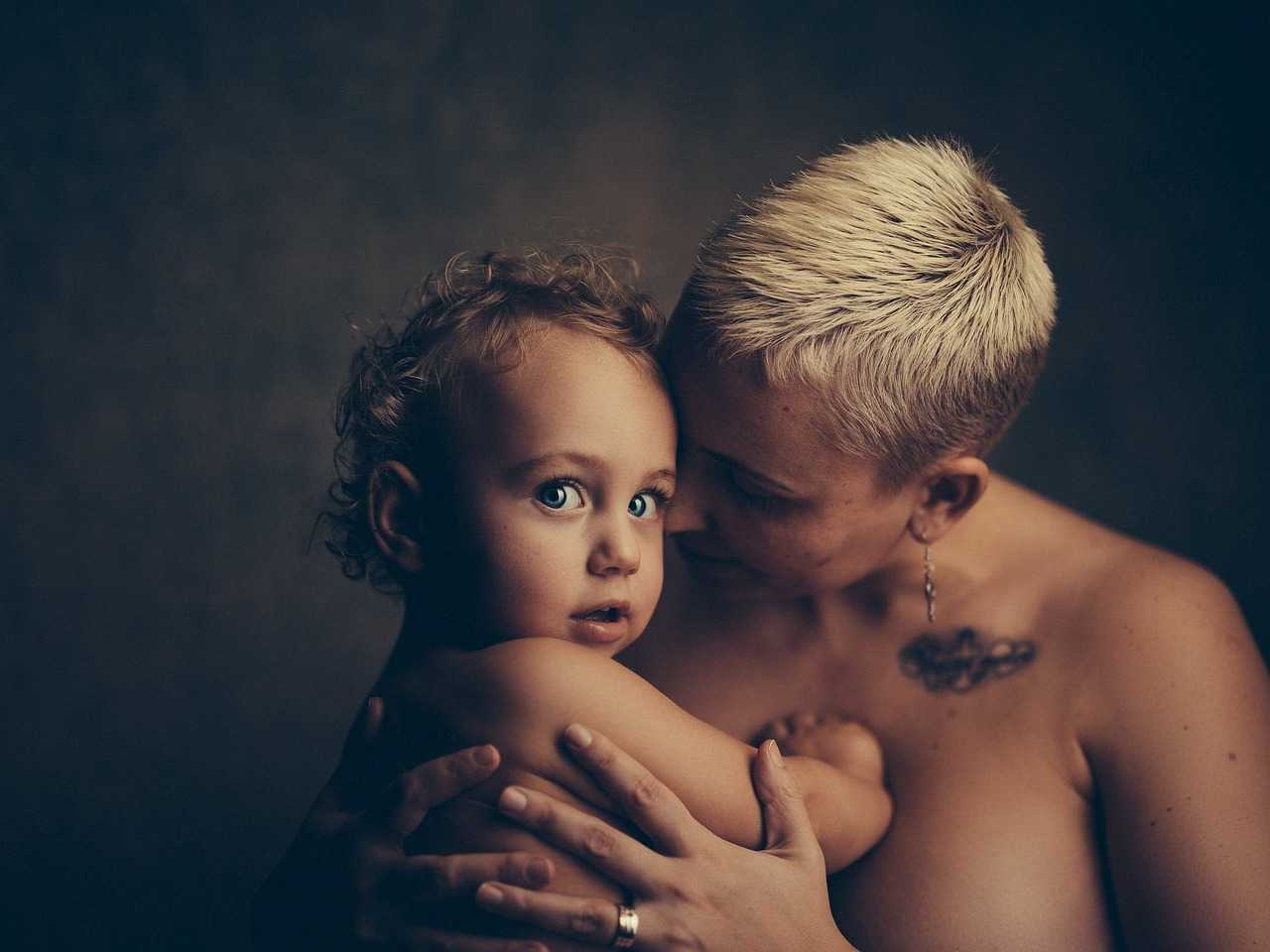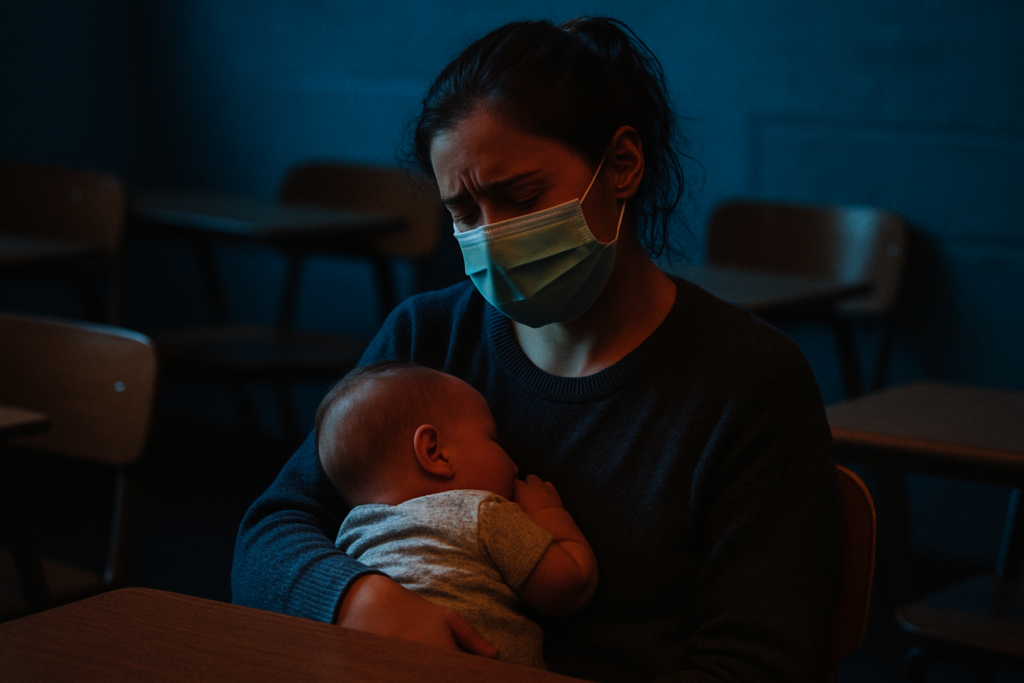The Shift That No One Saw Coming
When the pandemic hit, parenting changed overnight. Homes turned into offices, schools, daycares, and emotional triage centers all at the same time. Mothers, in particular, were slammed. With remote work creeping into every corner of the day, school Zooms piling on, and kids struggling under the weight of uncertainty, many moms found themselves holding the entire structure together with little more than stubbornness and survival instinct.
Support systems vanished. Nearby grandparents, friends, neighborhood daycares gone or off limits due to health risks. What was once a network became a vacuum. Families operated in isolation, and it became clear how much modern parenting relied on invisible scaffolding.
This wasn’t a gentle shift. It was a forced sprint into the unknown, with no handbook and no breaks. And while the chaos has quieted, the imprint remains. Parenting norms didn’t just bend they broke and reshaped. That shift is still unfolding.
Redefining the Role of Mother
For decades, the unpaid labor that keeps households running often carried silently by mothers went largely unnoticed. The pandemic cracked that invisibility wide open. With families stuck inside and routines melted down, caregiving became more visible, more constant, and, frankly, more exhausting.
There was no punching out. Moms shifted between conference calls, third grade Zoom math, meal prep, and emotional triage all under one roof. The term “mental load” became common shorthand for the relentless brainwork of anticipating needs, solving invisible problems, and remembering everything.
At the same time, gender dynamics were put on trial. In some homes, roles shifted: dads stepped up, equity improved, and traditional expectations softened. In others, the pressure snapped back, and women bore the brunt. Either way, the crisis didn’t just reveal cracks in the social foundation it spotlighted who had been quietly holding it together. Now, more than ever, the role of mothers refuses to go unnoticed or undervalued.
Childcare, Reimagined

The work from home revolution cracked open old parenting structures. Suddenly, moms weren’t hustling out the door before sunrise or commuting with a toddler in tow. They were doing emails while making lunch and sitting in on Zooms with one ear on naptime. The shift was jarring but it also created room for more hands on parenting, for better or worse.
But here’s the catch: while work went remote, childcare didn’t. Daycares closed. Backup care vanished. Grandparents became off limits. The result? An ongoing crisis most families haven’t fully recovered from.
Mothers especially adapted fast, often by necessity. Many turned to co op childcare models, where neighborhood parents rotate duties. Others pooled resources for informal ‘pods’ or leaned into shared calendars that resemble startup workflows more than family schedules. It wasn’t always easy. But it was proof that when systems fail, communities innovate.
The long term impact? Care models are becoming more community based, less dependent on outdated, inflexible institutions. Moms are not just coping they’re reinventing what childcare can look like.
Community, Connection, and Isolation
During the height of the pandemic, connection came with a screen. For many moms, that was enough to stay afloat. Facebook groups, Reddit threads, Instagram DMs these became the new village. Whether it was comparing virtual schooling strategies or venting about a toddler’s meltdown during a Zoom call, online communities filled the gap when physical ones collapsed. They weren’t just chats; they were lifelines.
Still, virtual support has limits. Isolation ran deep. Many moms felt unseen, unheard, and overwhelmingly alone. But from that loneliness came something unexpected: a new kind of solidarity. Strangers became confidants. Stories shared in comment sections carried more weight than some therapy sessions. A mom struggling in Ohio could lift up a mom in Manila. The distance didn’t matter. The shared experience did.
That’s also when the trust broke deep and quiet. With school schedules in chaos, childcare failing, and health systems overwhelmed, a lot of mothers stopped believing institutions would ever have their backs. Instead, they built circles of trust around one another. It’s no longer about waiting for the system to show up. It’s about showing up for each other and trusting that’s enough.
The Lasting Impact
There’s a quiet strength to the moms who came out the other side of the pandemic. They’ve had to get creative under pressure, and they’ve done it with limited support, sometimes at personal cost. What’s left is a generation of mothers who are sharper, more self reliant, and not interested in returning to the old way of doing things.
For many, the bar has shifted. It’s no longer about being the perfect parent it’s about being present, honest, and emotionally available. Parenting now has less polish and more realness. Family schedules are looser. Boundaries around work and home are tighter. And there’s been a noticeable shift in values: presence over polish, connection over comparison.
These changes aren’t going away. Post pandemic motherhood is still evolving, slowly but definitively. Moms are building new routines, new expectations, and in many cases, new communities. The old rulebook? It got shelved. For those looking to understand just how deep those changes run, it’s worth diving into stories and data that paint a fuller picture: motherhood after pandemic.
Looking Ahead
Modern motherhood is headed toward something more flexible, more digital, and hopefully more equitable. In five years, we’ll likely see more hybrid work setups as the norm, with mothers balancing their careers and caregiving from home offices and coworking spaces. Tech assisted parenting tools will be everywhere from AI powered routines to virtual pediatric consults but the need for human connection won’t disappear. Moms will still lean heavily on each other, both online and in tightly knit local networks.
That said, the system still isn’t built for them. Paid parental leave remains inconsistent. Mental health care is out of reach for many. Even basic necessities like formula and childcare can break household budgets. If anything is clear, it’s this: policy hasn’t kept pace with reality. Until it does, moms will keep pushing.
And this is where things are changing. Mothers are no longer quietly adapting they’re organizing, leading movements, running for office, and reshaping workplace culture. They’re no longer an afterthought in policy debates; they are the policy drivers. Whether it’s universal childcare, paid family leave, or affordable mental health access, moms are on the front lines, not because they want to be, but because they have to be. And that pressure is reshaping more than motherhood it’s reshaping society.


 William Denovan played a crucial role in shaping the success of Dazzling Holly Moms, contributing his expertise in content strategy and platform development. His ability to create engaging, informative content helped establish the platform as a valuable resource for modern mothers. William's dedication to ensuring the platform consistently delivers high-quality parenting tips, wellness advice, and travel recommendations has been instrumental in its growth. His contributions continue to enhance the experience for moms seeking guidance and inspiration on their parenting journey.
William Denovan played a crucial role in shaping the success of Dazzling Holly Moms, contributing his expertise in content strategy and platform development. His ability to create engaging, informative content helped establish the platform as a valuable resource for modern mothers. William's dedication to ensuring the platform consistently delivers high-quality parenting tips, wellness advice, and travel recommendations has been instrumental in its growth. His contributions continue to enhance the experience for moms seeking guidance and inspiration on their parenting journey.